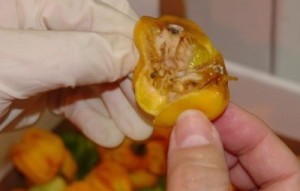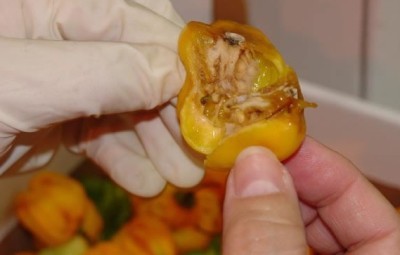
In a new report published today, GeneWatch UK publishes evidence that genetically modified (GM) insect factories could spread antibiotic resistant bacteria into the environment, posing a risk to human health. Antibiotic resistance is recognised to be a major problem for human and animal health as it makes treatments for many bacterial infections ineffective. Bacteria that are resistant to multiple antibiotics are sometimes known as “superbugs”.
UK company Oxitec has developed GM mosquitoes and agricultural pests which are bred using the common antibiotic tetracycline in their feed. The report explores concerns that mass-breeding and repeated large-scale open releases of such GM insects could spread antibiotic resistance into the environment, potentially creating more superbugs.
Genetically modified (GM) insect factories could spread antibiotic resistant bacteria into the environment, posing a risk to human health
Antibiotic resistance is recognised to be a major problem for human and animal health as it makes treatments for many bacterial infections ineffective. Bacteria that are resistant to multiple antibiotics are sometimes known as “superbugs”.
In a new report, Genetically Modified Insect Factories: A New Source of Superbugs?, campaigning groupGeneWatch UK publishes evidence that UK company Oxitec has developed GM mosquitoes and agricultural pests which are bred using the common antibiotic tetracycline in their feed.
Pest control?
Genetically modified insects are an experimental method of pest control, involving large-scale releases of GM insects worldwide (including mosquitoes and agricultural pests) in an attempt to reduce the ‘vectors’ carrying diseases such as malaira and dengue fever. Repeated very large-scale releases of GM insects are required to suppress wild insect populations and it is …
The report raises concerns that the bacteria and antibiotic resistant genes may spread through the insect population, from the mainly male GM insects that are released to their wild mates and offspring, and that horizontal gene transfer may lead to transfer of antibiotic resistance to bacteria, causing food- and water-borne diseases, such as E. coli, via larvae that develop in food (agricultural pests) or water (mosquitoes).
GeneWatch also points to the possible transfer to humans or animals, for example by swallowing GM agricultural pests at the larval stage when they will contaminate fruit and vegetable supplies, or swallowing GM mosquito larvae via contaminated water.
Please Read this Article at NyrNaturalNews.com





Leave a Reply